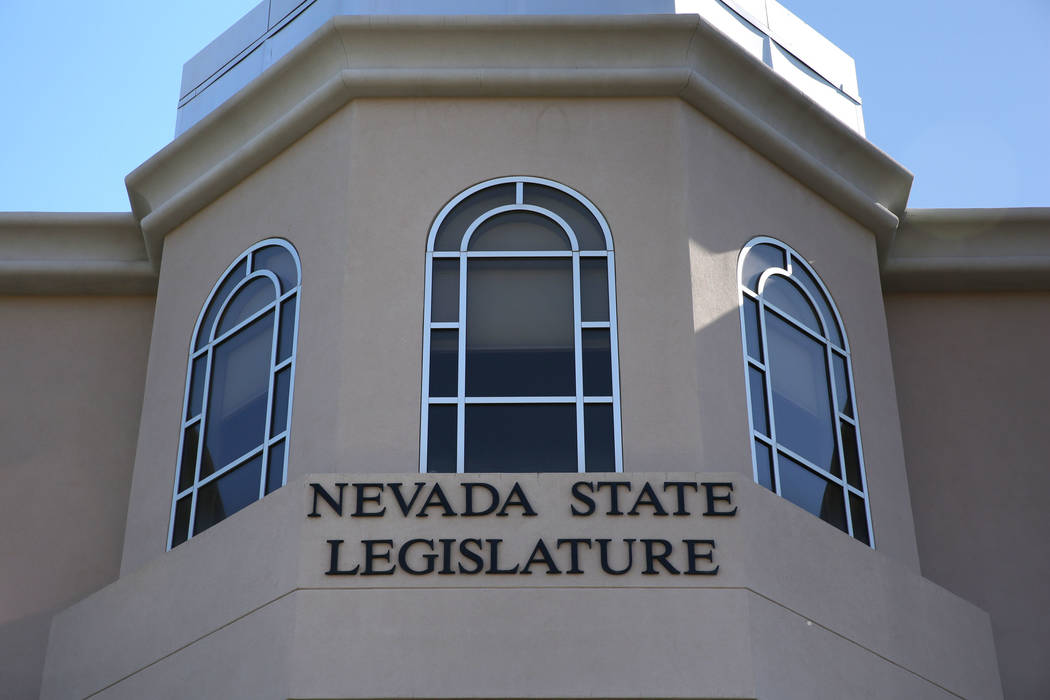EDITORIAL: How far left will Sisolak, Democrats go in Carson City?
The state’s 80th legislative session kicks off Monday morning with Democrats firmly in control for the first time in more than a generation.
How far left will they go?
Legislative Democrats are one vote away in the state Senate from enjoying a supermajority in both chambers. Steve Sisolak inhabits the Governor’s Mansion, the first Democrat to do so since Bob Miller left office in 1999. Emboldened by their electoral success in November, Democratic partisans will no doubt pressure the majority to deliver on an aggressive liberal agenda in Carson City.
While Republicans have the numbers — barely — to block any tax hikes, which require a two-thirds majority, they have few options for slowing most legislation. Elections have consequences, as the winners like to say.
Pragmatically, however, Gov. Sisolak and his legislative cohorts have good reason to exercise their power judiciously. The governor has long positioned himself as a moderate. A hard shift left might not sit well with many Nevada voters and could jeopardize his re-election prospects. Likewise, Democratic lawmakers surely don’t want to risk their majorities entering the 2021 session, which will address redistricting.
The state enters the next two-year budget cycle on firm footing. Gov. Sisolak vows no new tax hikes. In fact, however, his $8.9 billion general fund budget — which will increase spending almost 12 percent — relies on extending two taxes that are set to eventually be reduced. That’s a tax increase, regardless of the lofty rationalizations, and may offer Republicans a chance at relevance.
Voters should pay especially close attention to how the governor’s moderate rhetoric aligns with his policy proposals.
For instance, Gov. Sisolak vows to be business-friendly, yet he has already proposed large increases in the minimum wage and appears eager to expand regulatory red tape for the state’s job creators. He insists his budget reflects fiscal prudence, yet he proposes to allow collective bargaining for state employees as a sop to the unions that helped put him in office.
The latter will set the state on the road to financial disaster by ensuring that wages and benefits expand exponentially for Nevada workers. When government workers are allowed to collectively bargain, who represents the taxpayers on the other side of the table? Unlike in the private sector, where employees and management both have an interest in keeping the enterprise from bankruptcy, there is no incentive for public-sector unions to temper their demands when the government never goes out of business and has access to virtually unlimited funds courtesy the taxpayers.
Even the state’s previous Democratic governors recognized the financial havoc such a policy could trigger. Gov. Sisolak should reconsider his stance on collective bargaining for state workers.
Like virtually all those before him, Gov. Sisolak also made clear he intends to emphasize education. It will be revealing, then, to observe how eager he is this session to appease the flailing status quo, which has left Nevada at or near the bottom in national academic rankings. So far, his rhetoric hasn’t been encouraging.
The governor has proposed more money for state schools and teacher pay hikes. No surprise there. But he has also hinted he will neuter the education reforms introduced during the 2015 session and sanctioned by his popular predecessor, Gov. Brian Sandoval. So while Gov. Sisolak wrings his hands about a lack of spending on education, he proposes to drive up costs for school districts by tearing up a statute that provides them a modicum of relief from onerous prevailing wage requirements on construction projects. Another sop to labor interests at the expense of the Nevada taxpayer. And while he professes to want improvements in student achievement, he appears poised to gut an important reform designed to ensure that kids either become reading proficient by third grade or are held back.
The latter is yet another reward for the teacher unions, which are terrified the Read by 3 law will have parents up in arms by exposing a massive failure of the education establishment. But how are we helping children who struggle to read by reflexively and cynically passing them through the system, thus setting them up for almost certain failure?
Republican lawmakers may not have the votes to check these proposals, but they should at least make their voices heard loud and clear in opposition.
In the meantime, perhaps legislative Democrats and Gov. Sisolak can find a handful of issues to advance in unison with the Republican minority as a show of bipartisanship. Attacking overly burdensome occupational licensing restrictions and addressing civil forfeiture abuses come to mind as matters of potential agreement.
Legislative sessions, by law, are limited to 120 days. The importance of that restriction is likely to become crystal clear as the 80th session advances.

















